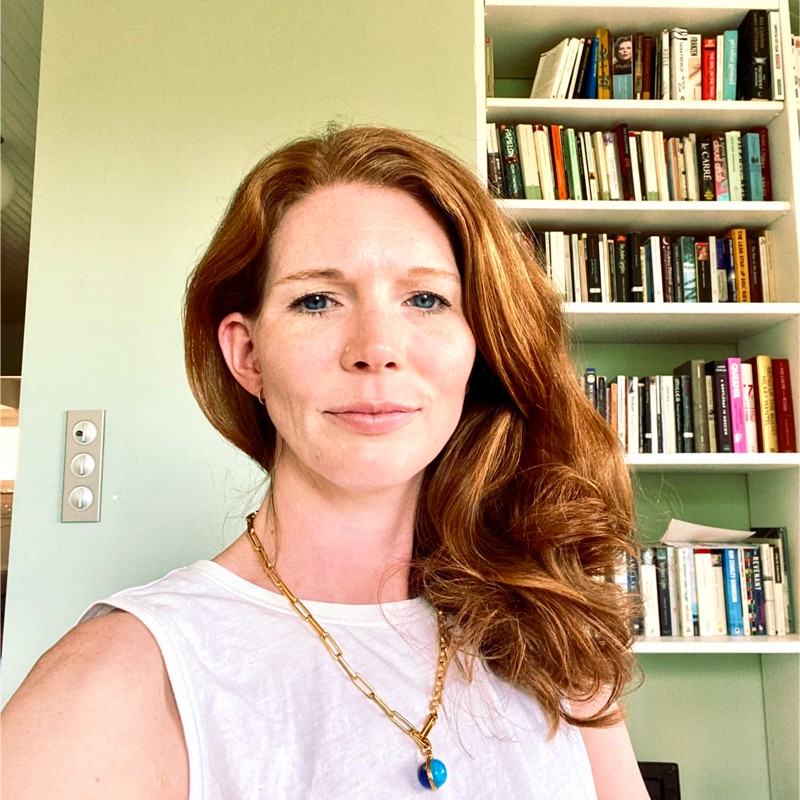Posted on: 20.09.2023
Leadership Lessons: Sustainability in Comms… with Lucy Gugen
Sustainability might be one of the most crucial initiatives (and conversations) of our time. It could also be one of the most challenging. We recently spoke with Lucy Gugen, Head of Strategic & Impact Communications at Anthesis all about her thoughts on the current landscape – and how she thinks it’ll evolve in the coming years.
Take a look.

How did you first get started in communications and sustainability?
I started my career in politics which gave me real insight into the power of messaging to connect with audiences and drive progress and change. From there, I moved into the agency world to help organisations and leaders articulate the impact they have and shift to purpose-driven narratives.
The landscape has evolved enormously since I began my career. Back then, the idea of businesses playing a major role in addressing social and environmental challenges was still new. But today, expectations have changed – stakeholders, leaders, and consumers now understand that companies have an obligation to help solve pressing issues like the climate crisis. Communications, particularly sustainability comms, is an important facilitator.
Do you think communications has influenced changes in behaviour around sustainability?
Absolutely – communications has an enormous power to shift behaviours when it comes to sustainability. Brands and businesses in particular have a huge opportunity to use their scale as a force for good and mobilise their customers, employees, and the broader public to adopt more sustainable habits. Communications can foster the emotional connections essential for the changes needed and motivation and collaboration from all sides is key given where we are.
What personal attributes do you think have helped your success?
Turning complexity into clarity is vital for all communicators and sustainability can be such a complex and challenging area with a vast number of acronyms and regulatory considerations. Tenacity is also important when making progress isn’t always immediate, and anyone in this space needs to maintain momentum.
And what about the key qualities needed from leaders?
A great understanding of the evolving landscape, for one. Context is so important, and the sustainability sector moves extremely quickly – stakeholder expectations increase, consumer demands change, regulations evolve. The goalposts move, and leaders need to be prepared to consistently meet those.
Navigating a shifting sustainability backdrop means you need to maintain your convictions and be resilient when meeting challenges.
What are your thoughts on balancing transparency and accountability in a very brand-conscious world?
Many brands wrestle with reconciling accountability and aspiration. Too much of the former risks complacency, while too much of the latter invites accusations of greenwashing. It’s about striking the right balance between proof points demonstrating real action, and inspirational narratives that connect with audiences to drive collective progress.
With that in mind, what are the biggest challenges you face in your role?
The prevailing narrative around climate and sustainability can be really negative with talk of ‘deadlines’ and ‘tipping points.’ This kind of ‘climate doomism’ breeds paralysis, and starts to deter action. What’s needed is a balanced perspective that recognises the urgency of climate action while not succumbing to despair.
Stories are key to mobilising action and driving progress. For those in comms, it’s our job to make sure that they are engaging, but – crucially – truthful as well.
How do you see the sector evolving in the next 5-10 years, particularly as public awareness continues to grow?
I think corporate activism around social justice will accelerate with companies taking vocal stands on social issues. NGOs already play a significant role but I would imagine we will see them exert additional pressure and demand accountability from companies.
Expect to see demands for tangible progress from stakeholders with underperforming companies facing consequences like lawsuits, fines, walkouts, and loss of market share. And I would expect carbon neutrality will be the baseline, with more companies pursuing carbon negativity.
What’s your advice for anyone looking to pivot away from ‘traditional’ comms into the sustainability space?
Read, read, read. The technical, strategic, stories – all of it. On-the-ground experience is really invaluable, as sustainability is constantly shifting. Learning by doing is the best experience.


























 Career Enquiry
Career Enquiry
